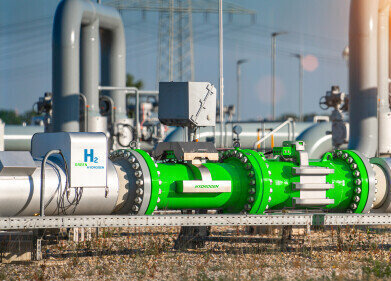Sustainable aviation fuel (SAF)
Is biomass a sustainable energy source?
Jul 09 2024
Biomass has long been regarded as a renewable and sustainable source of energy. Historically, it provided an eco-friendly alternative to fossil fuels, using organic materials like wood, crop residues, and animal manure. The key idea was that the CO2 released during biomass combustion was offset by the CO2 absorbed during the biomass growth phase, maintaining a carbon-neutral balance. However, modern developments and increased scale have raised significant concerns about the sustainability of biomass energy.
The modern large-scale utilisation of biomass energy introduces several challenges. A major issue is carbon emissions. While theoretically carbon-neutral, the entire lifecycle of biomass energy production—from cultivation to processing and transportation—can result in substantial greenhouse gas emissions. This undermines the carbon-neutrality claim and necessitates comprehensive lifecycle assessments to evaluate the true environmental impact.
Deforestation poses another significant challenge. The growing demand for biomass, particularly wood, has led to unsustainable forestry practices. Large-scale deforestation contributes to biodiversity loss, soil degradation, and reduces forests' carbon sequestration capacity, exacerbating climate change. Additionally, converting natural forests to monoculture plantations for biomass production can have detrimental ecological impacts, including reduced habitat complexity and soil fertility.
Land use and food security concerns are paramount. Allocating agricultural land for biomass crops can directly compete with food production, leading to higher food prices and potential shortages. This competition is particularly problematic in regions already facing food insecurity. Intensive agricultural practices required for biomass crops can also lead to soil erosion, water depletion, and increased use of fertilisers and pesticides, further degrading the environment.
Energy efficiency is another concern. Biomass energy conversion processes, such as combustion, gasification, and pyrolysis, often have lower efficiency compared to other renewable energy sources like solar and wind. The energy yield from biomass can be comparatively low, making it a less attractive option in terms of energy output per unit of input.
To restore biomass as a sustainable energy source, several strategies must be implemented. Sustainable sourcing of biomass is crucial. This involves adopting responsible forestry practices, such as selective logging and reforestation, and utilising agricultural residues and non-food crops for biomass production. By ensuring that biomass is sourced sustainably, the negative impacts on forests and agricultural lands can be mitigated.
Advancements in biomass conversion technologies are essential for improving energy efficiency and reducing emissions. Innovations in pyrolysis, gasification, and anaerobic digestion can enhance the efficiency of biomass energy systems and minimize their environmental footprint. For instance, pyrolysis can convert biomass into biochar, a stable form of carbon that can be used to improve soil health and sequester carbon.
Integrated energy systems can optimise the use of biomass in conjunction with other renewable energy sources. Combining biomass with solar or wind energy can provide a more stable and efficient energy supply, reducing reliance on any single source and enhancing overall sustainability. Such integrated approaches can maximise resource utilisation and minimise environmental impacts.
Policy and regulatory frameworks play a crucial role in ensuring the sustainability of biomass energy. Governments and international bodies need to implement stringent policies that promote sustainable biomass production and usage. This includes setting clear emission standards, encouraging sustainable land use practices, and providing incentives for research and development in advanced biomass technologies. Additionally, international cooperation and knowledge-sharing can help disseminate best practices and drive global efforts towards sustainable biomass energy.
A detailed exploration from Low-Tech Magazine provides valuable insights into making biomass energy sustainable again. It emphasises the importance of using biomass waste instead of dedicated crops, reducing the pressure on arable land. It also highlights the benefits of decentralised biomass energy systems, which can reduce transportation emissions and improve efficiency by using local resources. Furthermore, it advocates for the adoption of low-tech, low-cost solutions that are accessible and practical for various regions, particularly in developing countries.
While biomass has the potential to be a sustainable energy source, its current practices require significant improvements to meet environmental and social sustainability standards. Addressing the challenges related to carbon emissions, deforestation, land use, and energy efficiency is essential for revitalising biomass as a key component of the renewable energy mix. Sustainable sourcing, technological advancements, integrated energy systems, and robust policies are crucial for achieving this goal. By innovating and adopting practices that ensure the sustainable use of biomass, we can harness its potential to contribute to a greener and more sustainable future.
Digital Edition
PIN 26.1 Feb/Mar 2025
March 2025
Analytical Instrumentation - Elemental Analysis for Quality and Process Control at Refineries, for Lubricants and Wear Metals in Engine Oils - Synthetic Lubricants: New Developments - Scaling...
View all digital editions
Events
Mar 31 2025 Hannover, Germany
Mar 31 2025 Beijing, China
Apr 02 2025 Saigon, Vietnam
Apr 02 2025 Atyrau, Kazakhstan
Apr 08 2025 Birmingham, UK



















